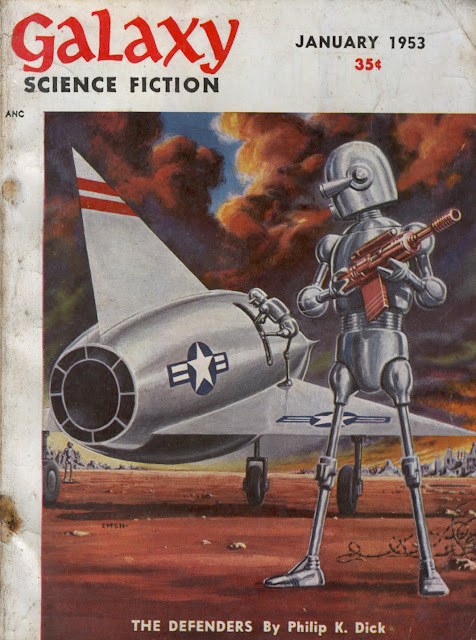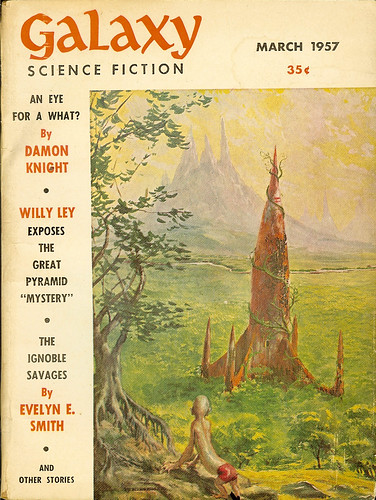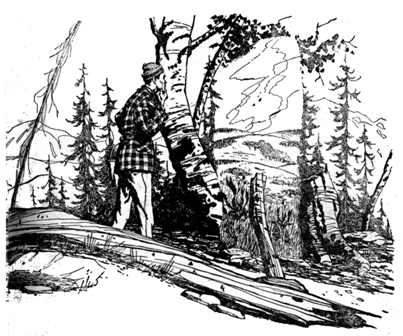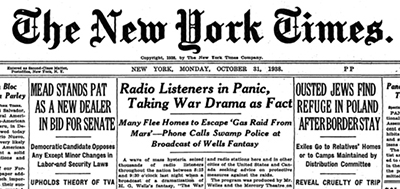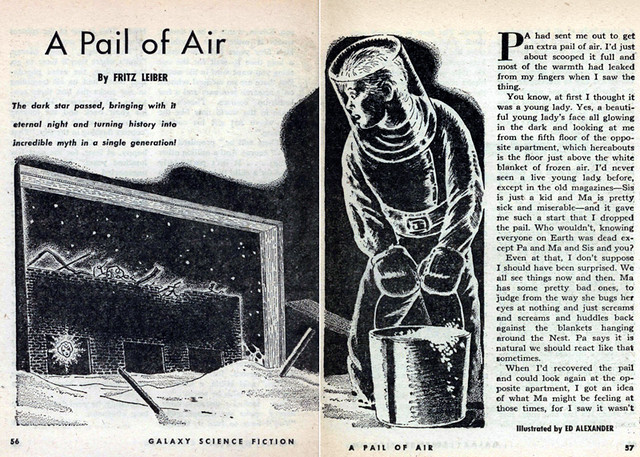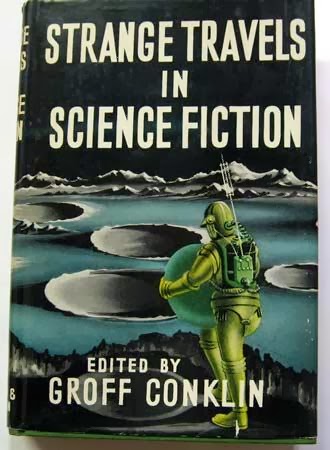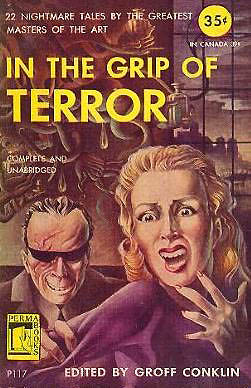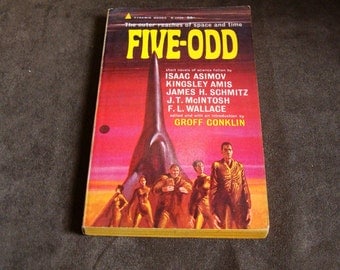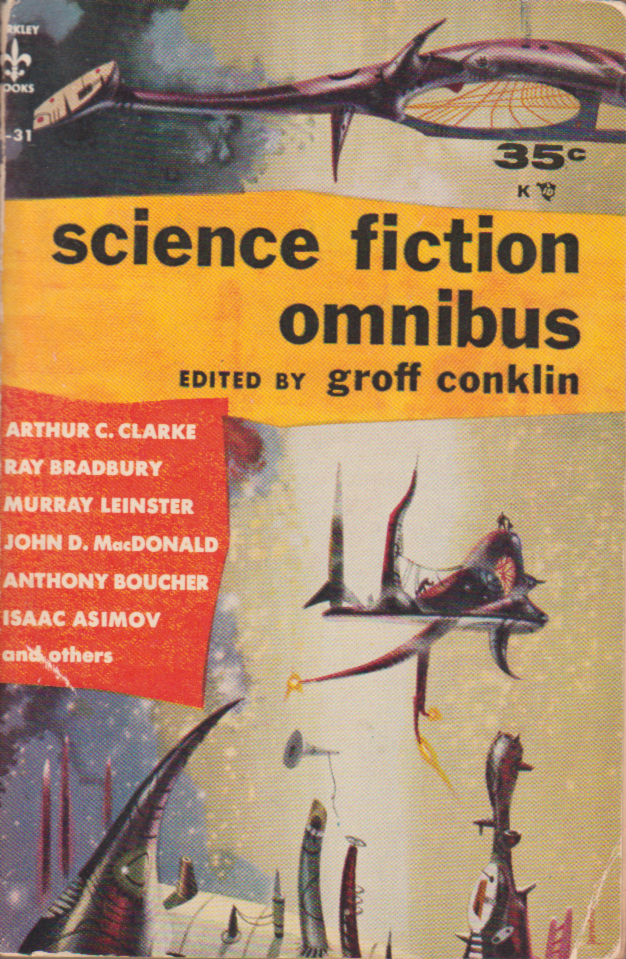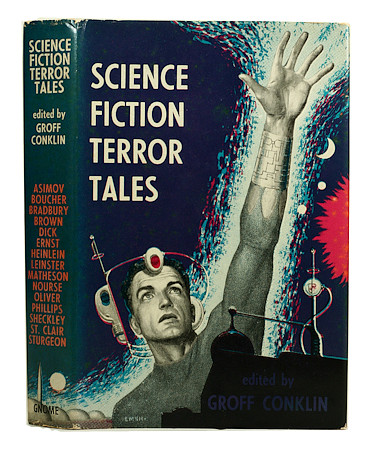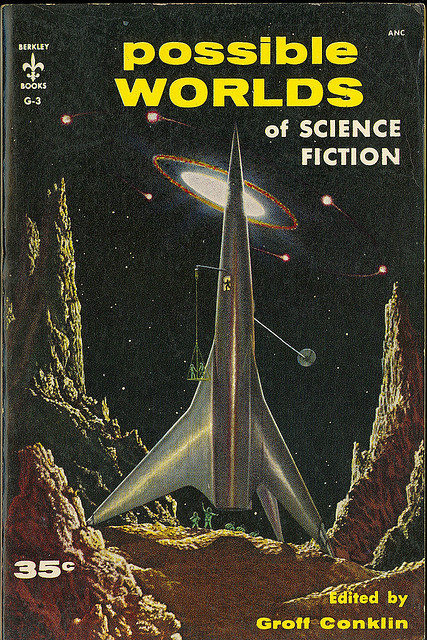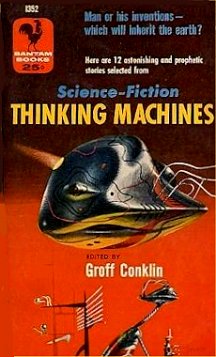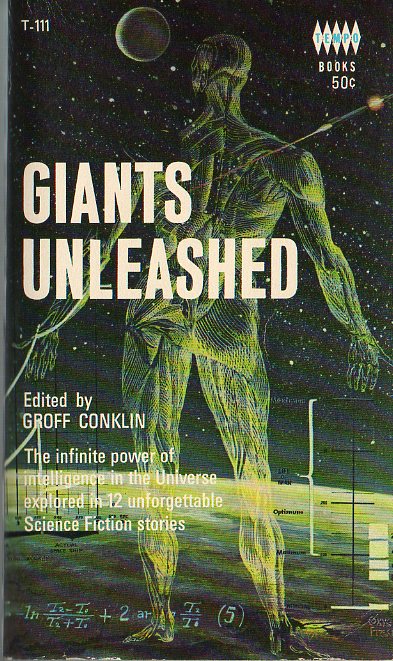This might be a good time to pause and offer a few observations and speculations about Conklin's anthologies. What I say should be taken with a grain of salt. I have read only a fraction of the total number of stories that Conklin reprinted. I know relatively little of the magazines from which he drew his stories.
1.Conklin's books were an important element in the public face of sf during the times in which they were published. Some of them ended up in public libraries and school libraries. In this his books are like those of Ray Bradbury. Conklin's collections were gateway books; innumerable must have been the future fans of sf whose earliest reading in the field included stories in Conklin anthologies.
2.The cover art and the stories selected helped to promote awareness that sf need not be focused on yarns about tough-guy spacemen protecting women in lingerie who were being menaced by extraterrestrials, space pirates, exploding planets, etc.
Whatever may be said about the cover art of a Conklin venture into horror stories --
-- the art on his sf books was generally reasonably tasteful and not utterly juvenile-looking.
3.Certainly Conklin reprinted a number of the acknowledged sf classics. Browsing his anthologies this year, though, I have been struck by the presence of numerous stories that didn't do much for me at least.
4.His choices seem to reflect developments in the sf field. Quite early on in its history, unlike the situation with some genre fiction, sf was reacting against its own history, however recent. Sf writers and editors indulged in "clever" irony and satire after having indulged in escapist adventure. I suppose many individual writers, as youngsters, pen adventure stories lacking in plausibility, with stock situations, etc. Before long they are writing wry, sophomoric stuff and maybe think no end of their cleverness. This may be a more or less inevitable "phase" for some writers. It seems something of the sort happened in sf. Many of these stories that kid around with sf tropes are not, now at least, very enjoyable. Many of them seem to be by authors who are hardly remembered now.


